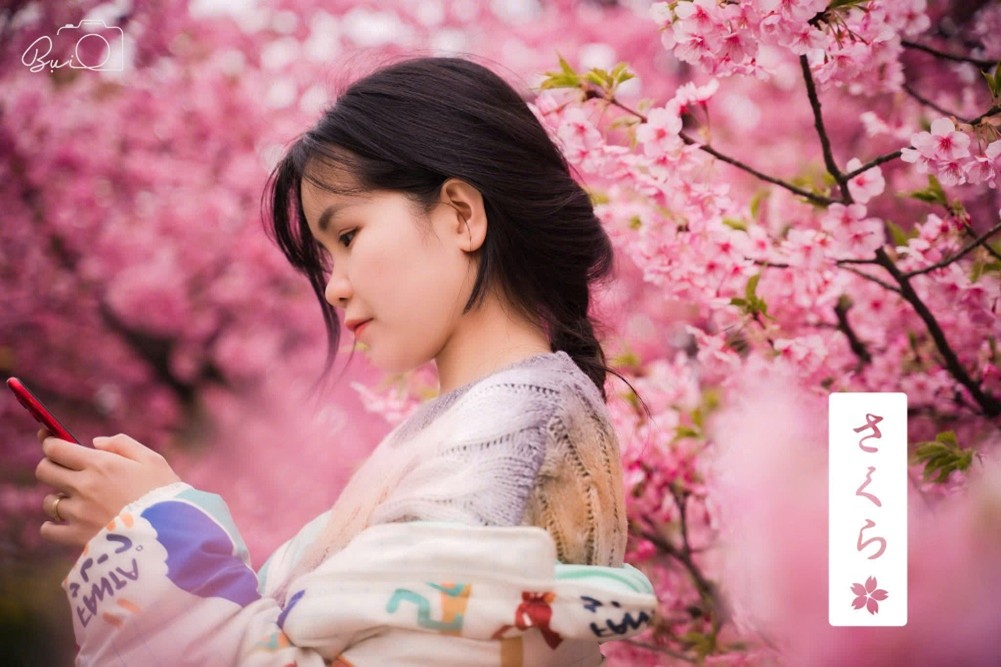Gripped by anime in her formative years, Diem fell in love with Japanese culture, and wanted to one day see Mt. Fuji’s snowy peak
Diem’s is from the Quảng Nam province in central Vietnam – a pleasant place to live throughout the year, with a minimum temperature of about 20°C in winter and a maximum temperature of about 32°C in summer. It is home to World Heritage Sites such as the Hoi An Ancient Town and My Son Ruins, and is attractive for its beautiful nature and traditional culture.
She lived a close and peaceful life in a family of four with her father, who was self-employed in construction, her mother, a company employee, and her three older brothers. She first became interested in Japan when she was in primary school, when a friend recommended reading Japanese manga. Seeing the depictions of Mt. Fuji and family gatherings in the manga only further deepened her desire for a different atmosphere to that of Vietnam, and she became interested in learning more about Japanese culture. In the first half of the interview, we asked her about her time in Vietnam.
(Interviewer: Mitsui Shinobu) Photographs: Diem
What is your home town like in Vietnam?
I’m from a province called Quảng Nam, which is right next to a really famous tourist city called Da Nang. It’s located in central Vietnam, so the climate is a different to cities in the south – mainly that there’s a difference in temperature between summer and winter. The province is also home to Hội An, which is famous for its ancient town that was designated as a UNESCO World Heritage site. At nights the cityscape is transformed into something out of a storybook as the streets are illuminated by the glow of lanterns. Beaches like Cua Dai and An Bang Beach also span the breathtaking coast. At the Mỹ Sơn ruins, another of the province’s world heritage sites, visitors can see cultural relics of the ancient Cham people. The region is famous for its noodle dishes cao lầu and mì quảng. They’re like udon or kishimen noodles topped with vegetables, seafood, or meat, so they’re pretty nutritious. I think Quảng Nam province is the perfect place for enjoying both tourism and food.
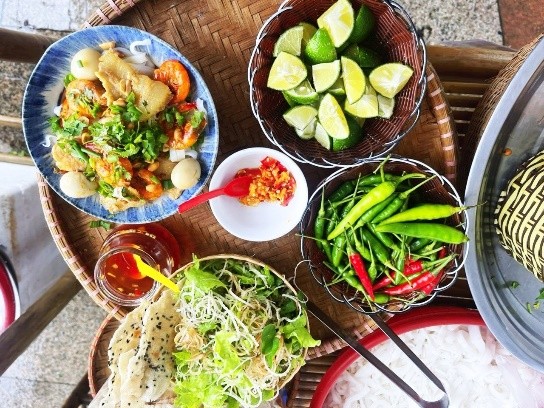
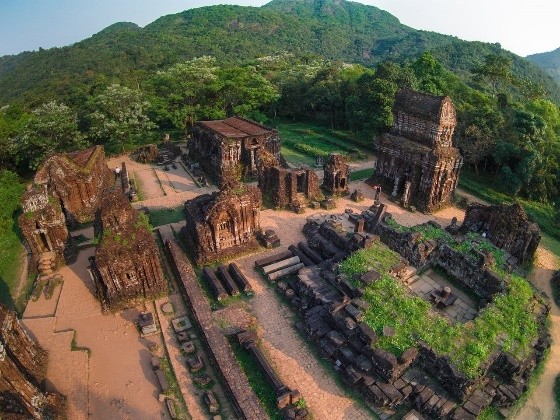
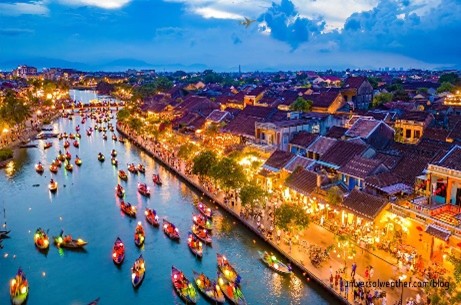
Tell me more about this famous tourist destination Da Nang!
Da Nang attracts tourists from all over the world thanks to its reputation as a tourism destination, and its also super popular amongst Japanese people, too. It’s got My Khe beach, Ba Na Hills’ Golden Bridge, and the Dragon Bridge. Da Nang shares some of Quảng Nam’s famous noodle dishes – namely cao lầu and mì quảng, but the region has lots of popular dishes using fresh seafood. It’s a great place to enjoy a mix of nature, culture, and food.
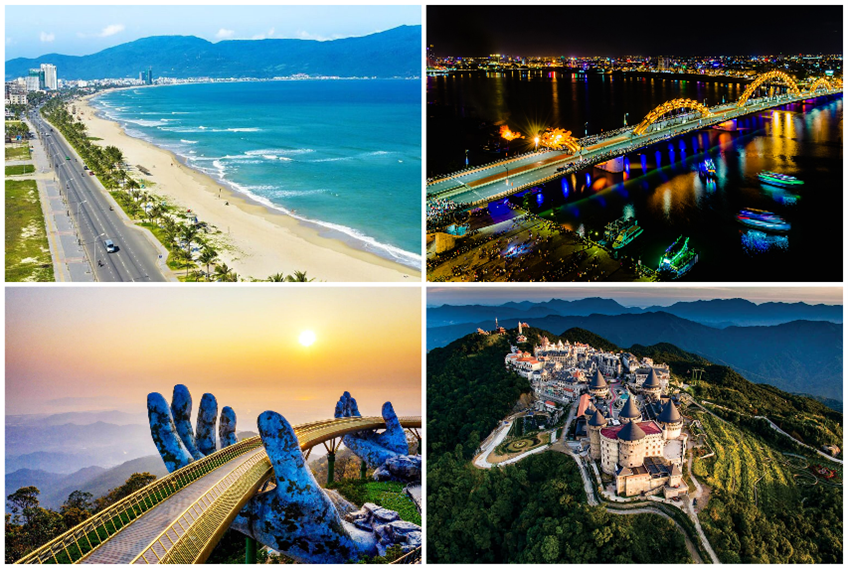
What are some memories you have from your time in Vietnam?
I have a lot of memories from times when my family would get together, like holidays and New Year’s. The times I spent with my family were always very heartwarming and made me happy. Vietnamese food is really good, especially when my mom makes it, and all the times we spent eating together around the table are memories that will stay with me forever. Every time I go back home I prepare a list of things I want to eat and get my mom to cook them for me.
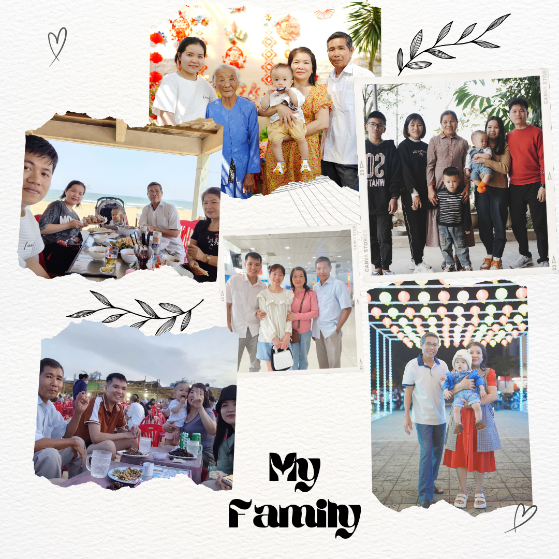
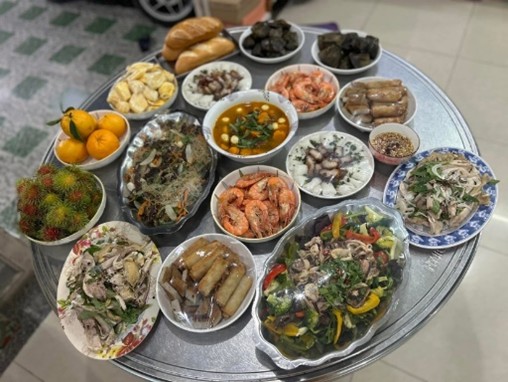
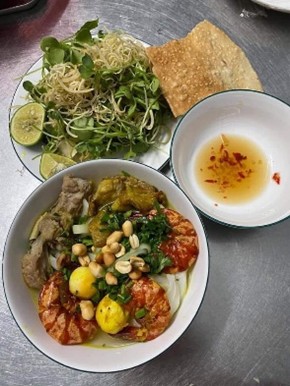
What did you do for fun as a university student?
I was really busy with my school work, so I really treasured the precious gaps of time between studying as time for my hobbies. I would spend time relaxing, by cooking together with friends or going to cafes I had never been to before. The university I was attending was about 6 hours away by car from my hometown, so going back home for breaks was one thing I enjoyed, too. My university enrolled students from all over the place, so I would learn different recipes from my friends and cook them for my family. Trying the new foods together was really fun, and I look back on those times very fondly. It was also a good opportunity to rest and recharge before the next semester began.
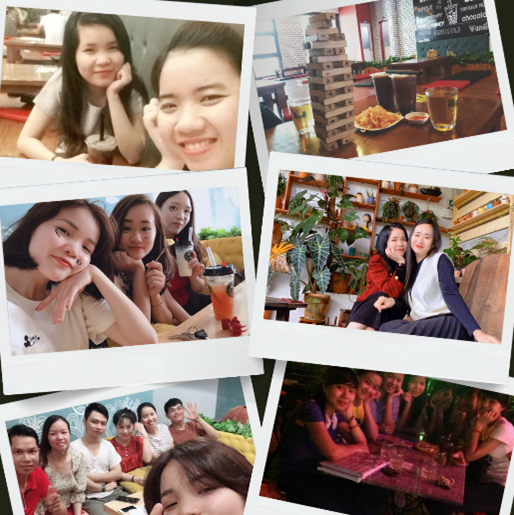
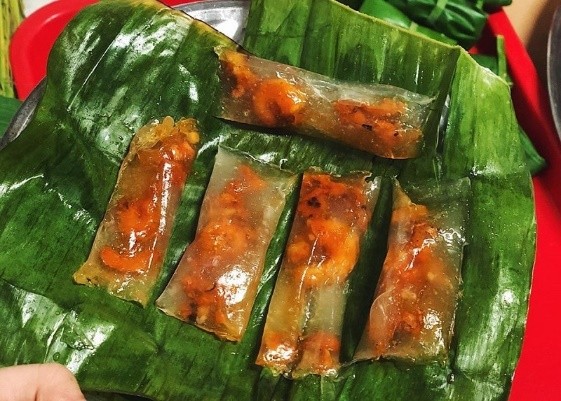
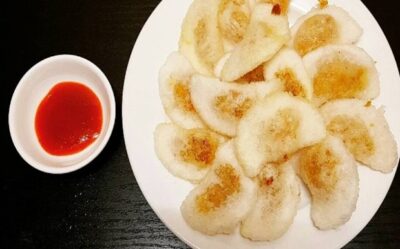
What got you interested in Japan?
My friends got me to read a lot of manga in elementary school, like Case Closed, Chibi Maruko-chan, Dragon Ball, and Sailor Moon. Chibi Maruko-chan introduced me to what the average Japanese family looks like and seeing the depictions of Mt. Fuji in the book just made me fall in love with it and Japanese buildings and culture. It doesn’t snow in Vietnam, so I was determined to see snow for myself.
“I went to Japan after graduating to enhance my potential”
After finishing high school, she went to a medical university and specialized in medical scanning technology. She considered working in Vietnam as a scanning technician at a medical facility, but she didn’t want a job path that restricted her to just “medicine” but rather one with more opportunities. This lead her to a new challenge in Japan, a front-runner in technical development.
After graduating university she dedicated herself to her Japanese language study and then came to Japan in 2017. She spent a year and a half studying at the Hamamatsu Japan Language College, before moving to the Hamamatsu Mirai Professional Training College to learn about business administration for two years. Following her graduation, she found employment at the Evoltech Hamamatsu Development Center Management Division where she is entrusted with important tasks for the company, such as supporting the labour management procedures required by employees, or those related to the status of residence of foreign nationals, translating documents and interpreting.
In the second half we will talk about why she decided to come to Japan.
Why did you decide to come to Japan?
After graduating university, I tried looking for a job in the medical field, but narrowing down my choices to my ideal area was too difficult and I was afraid that my career choices would be reduced later in life. Amongst all this stress, I remembered all the Japanese companies that have been expanding into the Vietnamese market and how technologically advanced Japan is – so I thought why not give it a shot? I decided to go to Japan for the sake of my future possibilities so I started to study Japanese.
How did you study Japanese?
I studied at a Japanese language center in Vietnam for about one year and I got to a level where I could have basic day-to-day conversations. I studied abroad in Japan in 2017 and attended the Hamamatsu Japan Language College for a year and a half, during which time my Japanese ability increased to the point I had no issues with daily conversations and interactions. Then in 2019, I enrolled at the Hamamatsu Mirai Professional Training College to help me find a job. My lessons were all in Japanese so I had to look up all the difficult specialist language. I passed N1 in December 2022, but 8 years on since coming to Japan I am still continuing my Japanese studies – like all the jargon I encounter at my job.
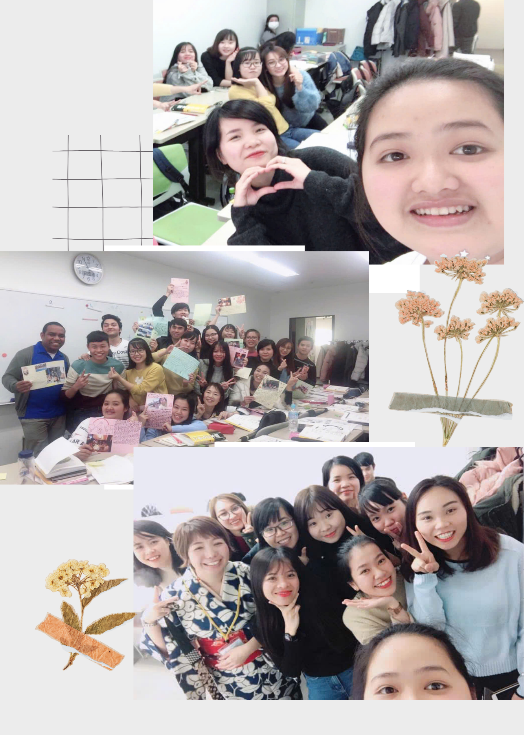
What do you think about Japan?
The towns are so beautiful and everywhere is so clean, and the people come across as very kind and polite. I was particularly taken aback by how concerned Japanese people are about manners in public places and consideration down to the last detail. Government assistance and forms of support are all clear and equal, which was also really impressive. Japan has really solid social security and administrative services which are available to everyone – something I think is absolutely fabulous.
I got married in 2021 and had my first child shortly after that, but thanks to Hamamatsu’s child-rearing support and social security systems, I am able to live anxiety-free.
What do you think about Hamamatsu and your life here?
Hamamatsu has a quiet and relaxed vibe, with a nice balance between urban areas and green spaces. I always imagined snowy places to be really cold, but it doesn’t really snow in this region so it’s relatively warm and easy place to live. I think summer’s are hot all across Japan, but the windy days in Hamamatsu are really nice.
Living here made me realise that Hamamatsu is a very comfortable place to live. Transport is very convenient, and there are many shopping malls and restaurants around the station, so you can easily get everything you need for your daily life. Hamamatsu is a very easy place to live because there is a lot of greenery around, beautiful parks, and riverside walks where you can relax in nature.
What kind of job are you doing now?
During my Hamamatsu Mirai Professional Training College I did a six-month internship at Evoltech after being referred by my teacher. I then went on to join Evoltech after graduation and this year will be my third year at the company. The Hamamatsu development center has about 50 Japanese employees and 13 Vietnamese employees.
As for what I actually do, I do various office takes like managing attendance, data entry, and handling phone and email correspondence. I also assist and provide guidance to both the Japanese staff and Vietnamese staff members regarding necessary procedures they must complete like for social security and year-end tax adjustment. My language skills also allow me to provide support for the Vietnamese staff members to ensure the processes for their statuses of residence go smoothly. They also have me in charge of translating documents and interpreting, so I am striving daily to complete my work more efficiently.
Sounds like a a nice, understanding company!
I’m really grateful that there’s no separation between the Japanese and foreign staff members and we all work together as friends. I had my first child in April last year and I was able to take maternity leave fully and they were really understanding about my new child-rearing responsibilities. I’m now back in the office and everyone around me is super supportive if I need to leave early to pick up my child or am late from dropping him off. My job also has a great support structure, so I am really thankful I have a job here.
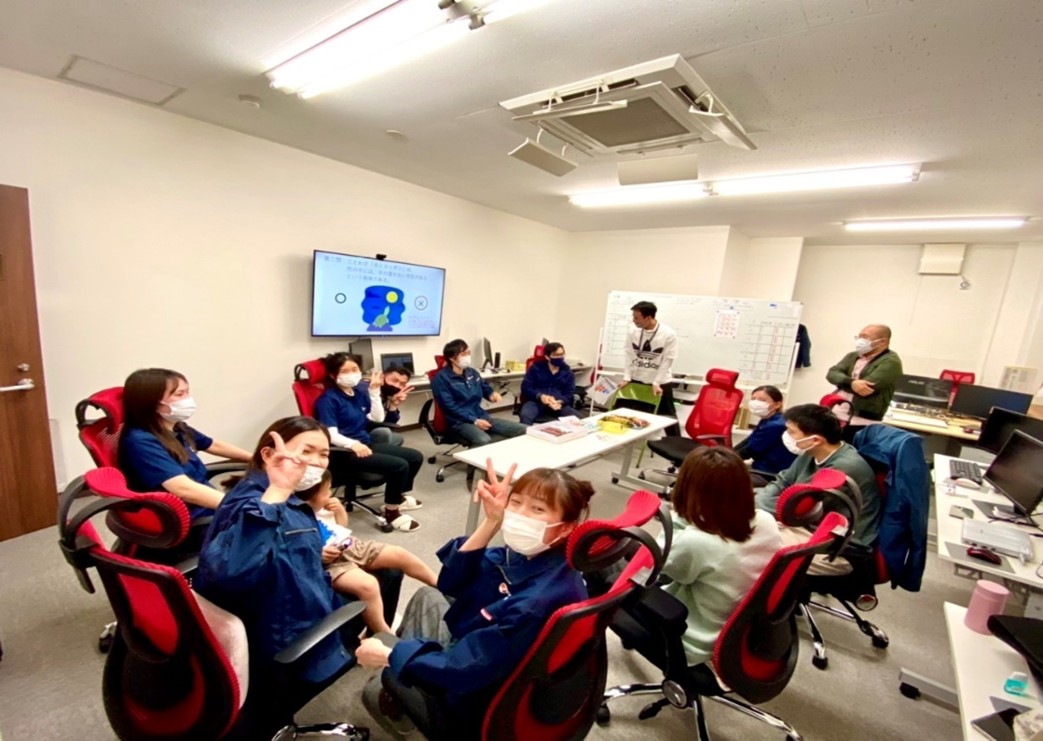
Tell me about your plans or goals!
I would like to further develop my skills in my current job and improve my administrative support, translation, and interpretation skills. In particular, my goal is to deepen my knowledge of laws and regulations and gain practical experience in order to be able to handle more specialised tasks, such as labour management and visa procedures. As for my Japanese language skills – I would like to improve my communication skills at the business level. I would like to be able to confidently express my opinions in meetings and presentations and handle complex problem-solving.
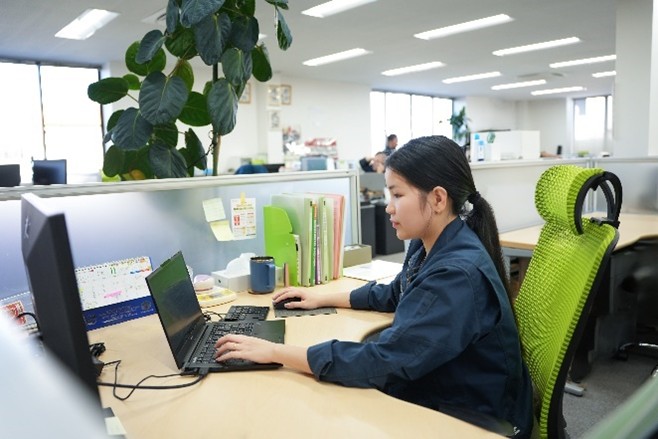
Finally, we spoke to Mr. Koji Fujigaki, the director of the Hamamatsu Development Center, about Diem.
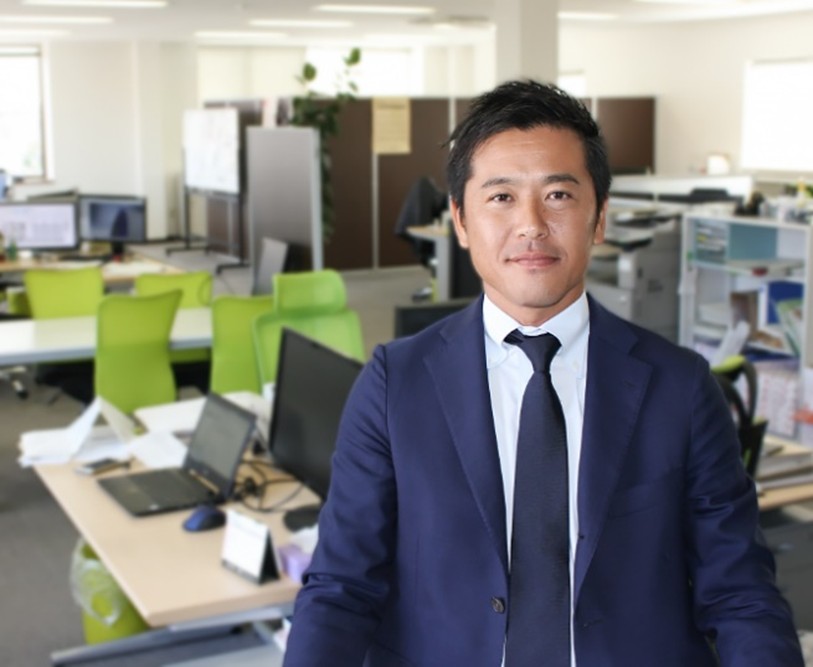
Evoltech Executive, Hamamatsu Development Center Director
Our company is involved in the engineer dispatching, information systems, machine design and other outsourced and contracted development projects. We are a company that continues to evolve on a daily basis to support ‘world-class Japanese manufacturing’ by retaining excellent engineers and speedily participating in complex projects. This year marks the sixth year since the company set up operations in Vietnam and I can only thank Ms. Diem for her work as a bridge between Vietnam and Japan. We have 21 excellent Vietnamese engineers throughout the company, and it is thanks to her generous support that Vietnamese people can work at Evoltech with peace of mind in all aspects, including visa status, daily life, the Japanese environment and social security in case they get married in Japan. She has perfect business manners and I can entrust her with my work with peace of mind. I believe that she is the reason that our excellent Vietnamese staff are able to work with clients all over the country, achieve results, and give back to society.
Thank you for speaking with me today – I’m looking forward to seeing what you get up to next.
LE THI NGUYET DIEM
Born in Quảng Nam in October 26, 1994
6.2015 – Graduated from Hue Medical University
10.2016-9.2017 – Kaizen Yoshida School Japanese Language
10.2017-3.2019 – Hamamatsu Japan Language College
4.2019-3.2021 – Hamamatsu Mirai Professional College
4.2021 – Began employment at Evoltech
2021 – Married to Vietnamese husband
4.2023 – Welcomed first child
4.2024 – Return to Evoltech
